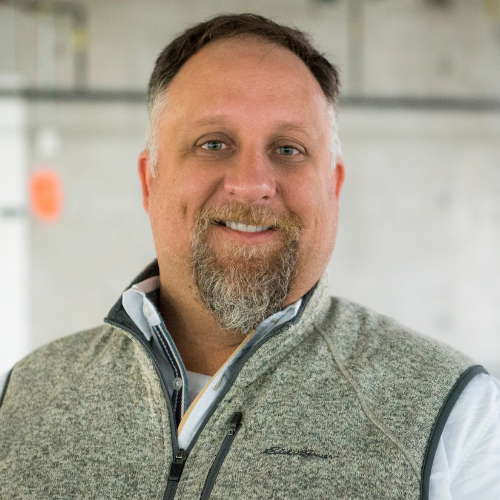Our researchers are a fierce driving force behind therapeutic development and future treatment. Let’s find out what makes them so passionate about KIF1A! Each month, one of our invested members of the KIF1A Research Network will be in the spotlight. Patrick D. Sarmiere, Ph.D., is next up to share a bit about himself and what makes science so exciting!

Patrick D. Sarmiere, Ph.D.
Vice President, Pre-clinical Research, Ovid TherapeuticsPatrick D. Sarmiere, Ph.D., is the Vice President of Pre-clinical Research at Ovid Therapeutics and leads early discovery and development activities focused on rare neurological diseases. Prior to joining Ovid, Dr. Sarmiere formed Sleeping Giant Biopharma Consulting, LLC in 2018 and as the principal, supported numerous successful regulatory filings at Celgene, in Summit, NJ. From 2009 to 2017, Patrick was employed as a cellular neuroscientist at Acorda Therapeutics, where he led development of key assays, models, and screens that supported numerous programs including cardiac failure, multiple sclerosis, stroke, and spinal cord injury. As a neuroscientist with the non-profit organization, Spinal Cord Society, USA, Patrick investigated pharmacological and autologous cell-based therapies for the treatment of chronic spinal cord injury. As a post-doctoral fellow, he studied the neurobiology of axon guidance and axon formation which were in part supported by a grant from the Christopher and Dana Reeve Paralysis Foundation. He earned his Ph.D. from the University of Rochester where his studies focused on the intracellular signaling responsible for promoting neuronal survival.
Through his training and professional experience, Patrick has developed broad and extensive knowledge in neurodegenerative and neurodevelopmental disorders, as well as developing a keen understanding of drug development and IND-enabling activities in collaborative and team environments. His goals are to continue developing robust and safe therapeutics in areas with high unmet medical need.
If you could have any superpower, what would it be and why?
Having two boys, I have seen a lot of Marvel movies. And I always have gravitated to the superpowers Ant Man has. He can shrink down and see how and see how things work at the molecular level. Would that not be amazing to see how processes in cells are working!
When did you know you wanted to be a scientist? Why were you drawn to this field?
I was always interested in outer space as a child. My father was an amateur astronomer, and our conversations lead me to want to understand how the universe worked. At some point, I realized that as vast and expansive outer space is, there is an equivalent vast and expansive “inner” space: the human body. Outer space was very abstract to me. Inner space, seemed much more real and tangible. Chemistry, biology and physiology, became very appealing to me because of the access. As luck would have it, I crossed paths some amazing people and scientists as a teenager that really cemented my desire to go into biomedical sciences. For that, I am very grateful.
What do you love most about your job?
There are so many things to be honest. First and foremost, it is knowing that if we are persistent we will develop safe, effective therapies for those in need. A close second, is being surrounded by equally passionate and brilliant people and organizations that have the same end goal.
What is the most challenging aspect of your job?
Keeping up with new information that is pertinent to our programs. There are so many productive labs and exciting research being published, it is hard to kept track of it all and interpret exactly how meaningful/useful it is going to be. Not only knowing what is out there in the scientific world, but knowing how to use it is very challenging. Fundamentally, that is why collaborations are so important.
What development are you most excited about in terms of KIF1A research?
The recent work in C. elegans [tiny transparent roundworms] defining the function of KIF1A and corresponding mutations in neurodevelopment is extremely exciting and will no doubt be very impactful on KAND research.
I couldn’t get through a day at work without:
Coffee
When you are not working, what do you like to do?
Making sawdust. I enjoy woodworking.
